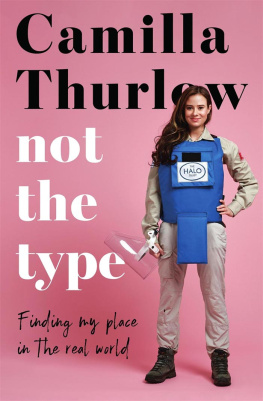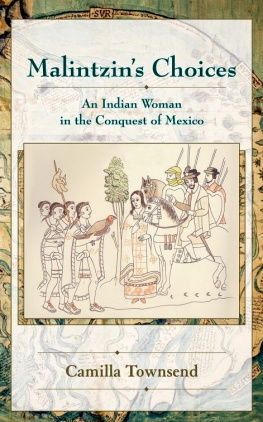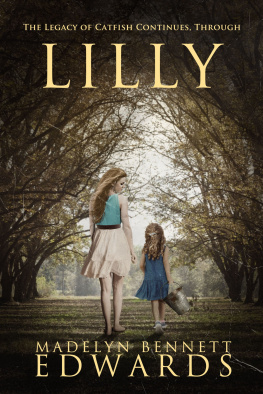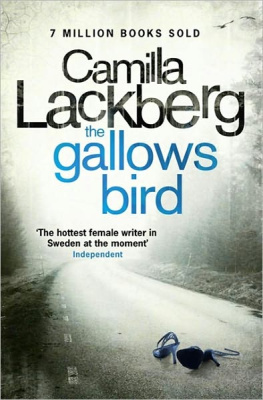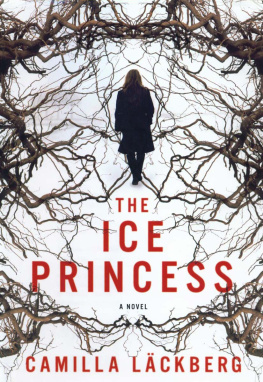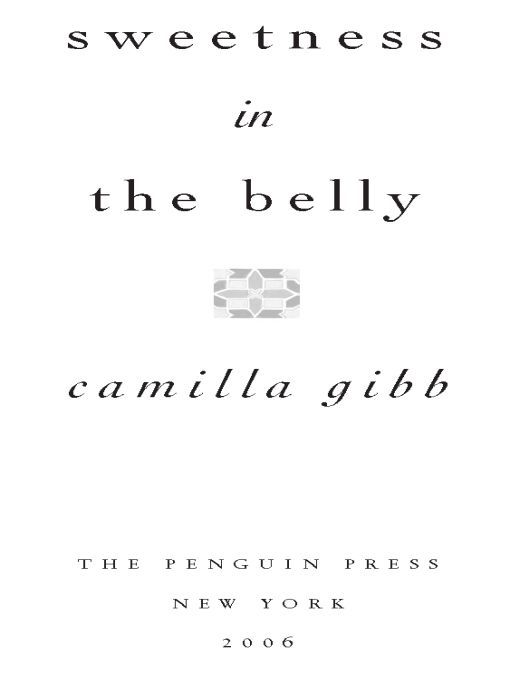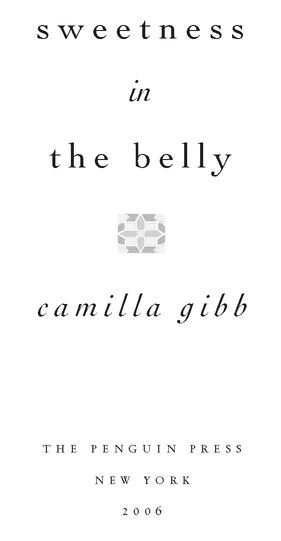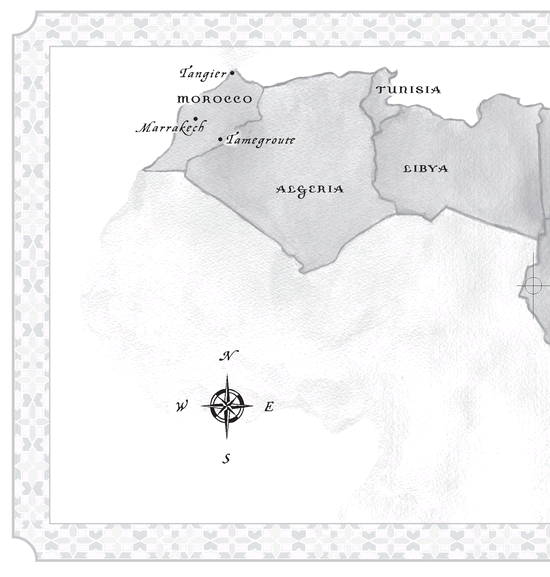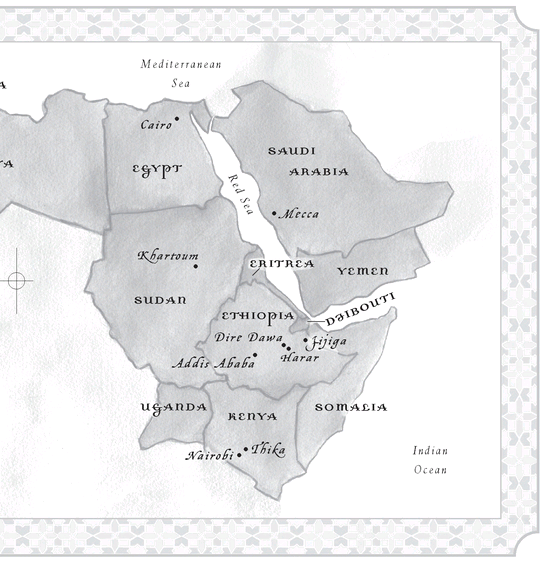Table of Contents
ALSO BY CAMILLA GIBB
Mouthing the Words The Petty Details of So-and-Sos Life
For Abdi, Biscutti, Agitu and the ge waldachthe children of Harar
PROLOGUE
harar, ethiopia
The sun makes its orange way east from Arabia, over a Red Sea, across volcanic fields and desert and over the black hills to the qat- and coffee-shrubbed land of the fertile valley that surrounds our walled city. Night departs on the heels of the hyenas: they hear the suns approach as a hostile ringing, perceptible only to their ears, and it drives them back, bloody lipped and panic stricken, to their caves.
In darkness they have feasted on the citys broken streets: devouring lame dogs in alleyways and licking eggshells and entrails off the ground. The people of the city cannot afford to waste their food, nor can they neglect to feed the hyenas either. To let them go hungry is to forfeit their role as people on this wild earth, and strain the already tenuous ties that bind Gods creatures.
A hundred years ago, when the citys gates were still closed at nightthe key lodged firmly under the sleeping head of a neurotic emirthe hyenas were the only outsiders permitted access after dark. They would crawl through the drainage portals in the citys clay walls. But the gates are splayed open now, have been for decades, a symbol of historys turn against this Muslim outpost, a city of saints and scholars founded by Arabs who brought Islam to Abyssinia in the ninth century, the former capital of an emirate that once ruled for hundreds of miles.
For all the fear they inspire, though, if a hyena must die, one hopes it might do so on ones doorstep. Pluck its eyebrows, fashion a bracelet, and you are guaranteed protection from buda, the evil eye. Endure the inconvenience of having to step over a hideous corpse baking in the African sun all day, but be assured that by the following morning, thanks to hyenas lack of inhibitions regarding cannibalism, the street will once again be licked clean.
As every day begins, the anguished cries of these feral children grow dim against a rising crescendo of birds quibbling in the pomegranate and lime trees of the citys courtyards. And then the muezzins call: beckoning the citys sleeping populace with a shower of praise for an almighty God. There are ninety-nine of them within the walls of this tiny cityninety-nine muezzins for ninety-nine mosques. It takes the culmination of the staggered, near-simultaneous beginnings of a hundred less one to create the particular sound that is heard as godliness in Harar.
But I dont want to go among mad people, Alice remarked.
Oh, you cant help that, said the Cat: were all mad here. Im mad. Youre mad.
How do you know Im mad? said Alice.
You must be, said the Cat, or you wouldnt have come here.
LEWIS CARROLL
Alices Adventures in Wonderland
part one
london, england
1981-1985
scar tissue
On a wet night in Thatchers Britain, a miracle was delivered onto the pockmarked pavement behind a decrepit building once known as Lambeth Hospital. Four women standing flanked by battered rubbish bins looked up to a close English sky and thanked Allah for this sign of his generosity. Two women ululated, one little boy, shy and tired, buried his face in his mothers neck, and one baby stamped with a continent-shaped mole tried out her lungs. Her wail was mighty and unselfconscious, and with it, she announced that we had all arrived in England. None of us had hitherto had the confidence to be so brazen.
I was one of those four women. I trained in this godforsaken building, a gothic nightmare of a place, a former workhouse where the poor were imprisoned and dividedmen from women, aged and infirm from able bodied, able-bodied good from able-bodied badeach forced to break a daily quota of stone in order to earn their keep. Adjacent is the old infirmary, which once had its own Register of Lunatics, among them a woman named Hannah Chaplin, diagnosed with acute psychosis resulting from syphilis while in residence there with her seven-year-old son Charlie, some eighty years ago.
I dont share this history, though Ive moved within its walls. In the places I have lived, the aged and the infirm and the psychotic are not separated from the rest of us. They are part of us. I dont share this history, but as a child, I did see a Charlie Chaplin film in a cinema in Tangier through the smoke of a hundred cigarettes. I sat cross-legged between my parents on a wooden bench, a carpet of peanut shells at our feet, the audience roaring with laughter, united by the shared language of bodies without words.
Amazing that humor could ever be born of this place. The building now stands condemned, slated for demolition, and I work at South Western, a hospital largely catering to the poor from the beleaguered housing estates in the surrounding areas: the mentally ill, the drug addicted, the unemployed white, the Asian and Afro-Caribbean immigrants and the refugees and asylum seekers, the latest wave of which has been rolling in from torn parts of East Africa, principally Eritrea and Sudan.
Many of these claimants avoid the hospital, overwhelmed or intimidated as they are by the agents and agencies of the statethe customs officers, police, civil servants, lawyers, social workers and doctorswith their unreadable expressions and their unreadable forms. I know this because they are my neighbors. I encounter them in the elevator, in the laundrette, in the dimly lit concrete corridors of high-rises on the Cotton Gardens Estate. Ive lived in a one-bedroom council flat on the fourteenth floor of one of these buildings since the autumn of 1974compensation for the circumstances of my arrival.
My white face and white uniform give me the appearance of authority in this new world, though my experiences, as my neighbors quickly come to discover, are rooted in the old. Im a white Muslim woman raised in Africa, now employed by the National Health Service. I exist somewhere between what they know and what they fear, somewhere between the past and the future, which is not quite the present. I can translate the forms for them before kneeling down and putting my forehead to the same ground. Linoleum, concrete, industrial carpet. Five times a day, wherever we might be, however much we might doubt ourselves and the world around us.
I was not always a Muslim, but once I was led into the absorption of prayer and the mysteries of the Quran, something troubled in me became still.
I was the daughter of two solitary renegades whod met at Trinity College Dublin in the 1950s, freaks pulled by the magnet of shared disenchantment into an inseparable embrace. Alice and Philip, so convinced they had enough love, intelligence and language between them to make their way around the world that they took a leave of absence from university and obligation that would last the rest of their lives, setting off on foot, with me nothing more than an egg in my mothers belly.


